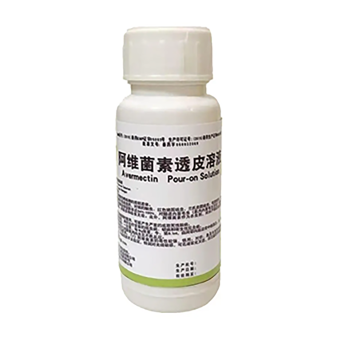- Afrikaans
- Albanian
- Amharic
- Arabic
- Armenian
- Azerbaijani
- Basque
- Belarusian
- Bengali
- Bosnian
- Bulgarian
- Catalan
- Cebuano
- Corsican
- Croatian
- Czech
- Danish
- Dutch
- English
- Esperanto
- Estonian
- Finnish
- French
- Frisian
- Galician
- Georgian
- German
- Greek
- Gujarati
- Haitian Creole
- hausa
- hawaiian
- Hebrew
- Hindi
- Miao
- Hungarian
- Icelandic
- igbo
- Indonesian
- irish
- Italian
- Japanese
- Javanese
- Kannada
- kazakh
- Khmer
- Rwandese
- Korean
- Kurdish
- Kyrgyz
- Lao
- Latin
- Latvian
- Lithuanian
- Luxembourgish
- Macedonian
- Malgashi
- Malay
- Malayalam
- Maltese
- Maori
- Marathi
- Mongolian
- Myanmar
- Nepali
- Norwegian
- Norwegian
- Occitan
- Pashto
- Persian
- Polish
- Portuguese
- Punjabi
- Romanian
- Russian
- Samoan
- Scottish Gaelic
- Serbian
- Sesotho
- Shona
- Sindhi
- Sinhala
- Slovak
- Slovenian
- Somali
- Spanish
- Sundanese
- Swahili
- Swedish
- Tagalog
- Tajik
- Tamil
- Tatar
- Telugu
- Thai
- Turkish
- Turkmen
- Ukrainian
- Urdu
- Uighur
- Uzbek
- Vietnamese
- Welsh
- Bantu
- Yiddish
- Yoruba
- Zulu
nov. . 06, 2024 19:54 Back to list
Injectable Ivermectin for Cattle Use and Benefits in Livestock Health Management
The Use of Ivermectin Injectable for Cattle Benefits and Considerations
Ivermectin is a widely recognized antiparasitic medication primarily used in veterinary medicine for the treatment of a variety of internal and external parasites affecting livestock. One of its most common forms is the injectable solution, especially formulated for cattle. Understanding its uses, benefits, and important considerations can help farmers and veterinarians ensure the health and productivity of cattle.
What is Ivermectin?
Ivermectin belongs to a class of drugs known as avermectins, which are derived from the bacterium Streptomyces avermitilis. This drug is known for its effectiveness against a broad spectrum of parasites, including roundworms, lungworms, external parasites like lice and mites, and certain types of ticks. Its broad-spectrum efficacy makes it an invaluable tool in maintaining the health of cattle herds.
Benefits of Ivermectin Injectable for Cattle
1. Effective Parasite Control The primary benefit of using ivermectin injectable for cattle is its high efficacy against various parasites. This can lead to measurable improvements in animal health, growth rates, and overall productivity.
2. Ease of Administration The injectable form allows for precise dosing and can be administered quickly and effectively, particularly in larger herds where oral administration of other forms might be challenging or impractical.
3. Long-Lasting Protection Ivermectin provides prolonged protection against reinfestation by various parasites, thereby minimizing the frequency of treatments needed. This can save time and reduce stress on both animals and handlers.
4. Withdrawal Time In comparison to some other antiparasitic treatments, ivermectin has relatively short withdrawal times, which means that cattle can be slaughtered for beef relatively soon after treatment, ensuring compliance with food safety regulations.
5. Reduced Resistance Development When used as part of an integrated parasite management program, ivermectin can help in delaying the development of resistance among parasitic populations, making it a preferred choice for many farmers and veterinarians.
ivermectin injectable for cattle

Considerations and Precautions
While there are many benefits to using ivermectin injectable for cattle, there are also important considerations to bear in mind to ensure its effectiveness and the well-being of the animals.
1. Proper Dosage It is critical to administer the correct dosage based on the weight of the animal to avoid underdosage (which can lead to resistance) or overdose (which can cause adverse effects). Consultation with a veterinarian is recommended to determine the appropriate dose.
2. Resistance Management Overreliance on ivermectin or any antiparasitic drug can lead to the development of resistant parasite strains. To mitigate this risk, it's essential to adhere to rotating dewormers, maintaining pasture hygiene, and incorporating non-chemical methods into the parasite control program.
3. Potential Side Effects Although generally safe, ivermectin can have side effects, especially if administered incorrectly. Possible reactions can include localized swelling, allergic reactions, or neurological effects in susceptible animals. Monitoring cattle post-treatment is advisable.
4. Environmental Considerations Ivermectin has been shown to have environmental impacts, particularly on non-target species, such as aquatic organisms. Care should be taken to avoid contamination of water sources when administering the drug.
5. Veterinary Guidance Regular consultations with a veterinarian are essential for effective herd health management. They can provide valuable insights on the proper use of ivermectin, suggest alternative treatments when necessary, and help in monitoring the health status of the herd.
Conclusion
Ivermectin injectable for cattle has become a cornerstone in the management of parasites affecting livestock. Its effectiveness, ease of administration, and relatively safe profile make it an essential tool for cattle farmers. However, as with any medication, its use should be approached with caution, and best practices should be followed to minimize risks and maximize the health benefits to the animals. By incorporating ivermectin into a comprehensive herd health strategy, farmers can ensure their cattle remain healthy, productive, and free from debilitating parasitic infestations.
-
Guide to Oxytetracycline Injection
NewsMar.27,2025
-
Guide to Colistin Sulphate
NewsMar.27,2025
-
Gentamicin Sulfate: Uses, Price, And Key Information
NewsMar.27,2025
-
Enrofloxacin Injection: Uses, Price, And Supplier Information
NewsMar.27,2025
-
Dexamethasone Sodium Phosphate Injection: Uses, Price, And Key Information
NewsMar.27,2025
-
Albendazole Tablet: Uses, Dosage, Cost, And Key Information
NewsMar.27,2025













